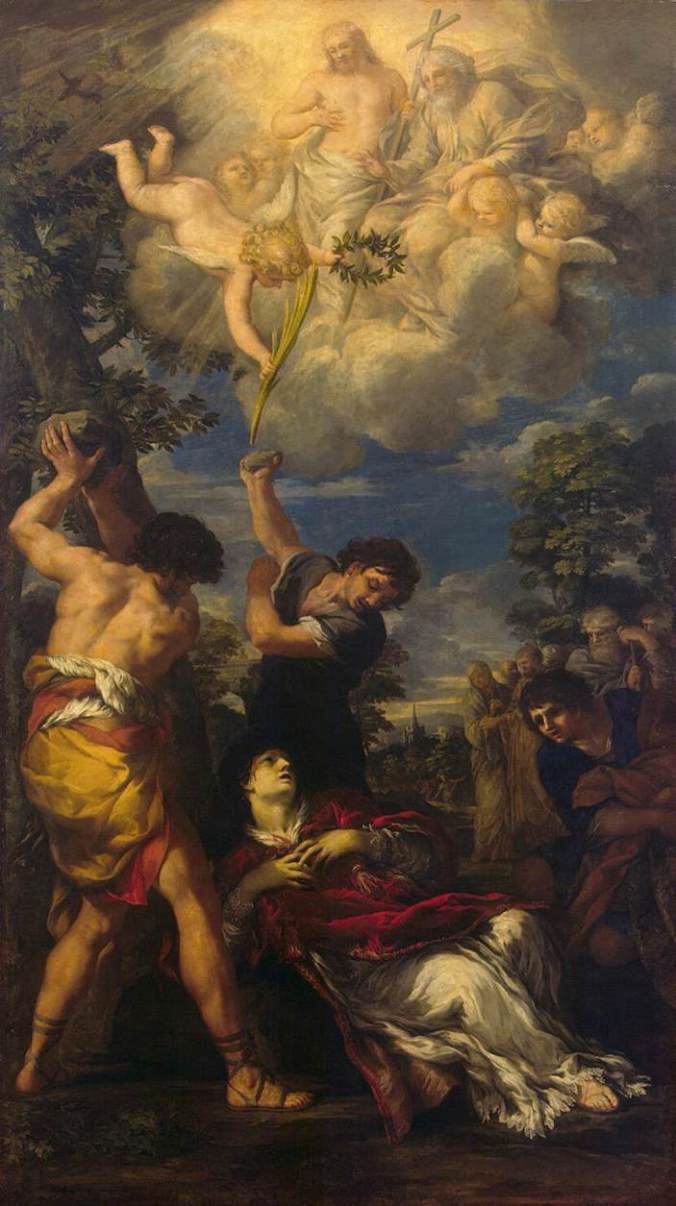“There is one Physician who is possessed both of flesh and spirit; both made and not made; God existing in flesh; true life in death; both of Mary and of God; first possible and then impossible,— even Jesus Christ our Lord.” – Ignatius (A.D. 30–107)

Pietro da Cortona’s The Stoning of St. Stephen ca. 1660
Ignatius of Antioch. (1885). The Epistle of Ignatius to the Ephesians. In A. Roberts, J. Donaldson & A. C. Coxe (Eds.), The Ante-Nicene Fathers, Volume I: The Apostolic Fathers with Justin Martyr and Irenaeus (A. Roberts, J. Donaldson & A. C. Coxe, Ed.) (52). Buffalo, NY: Christian Literature Company. [Shorter Version of Epistle To The Ephesians]
Pingback: Review for Rebels Rescued: A Student’s Guide to Reformed Theology by Brian H. Cosby | Bipolar for Christ
Beautiful quote Prayson…
“I am the wheat of God. I must be ground by the teeth of wild beasts to become the pure bread of Christ.”
In these words, Ignatius, the third bishop of Antioch, pleaded with his influential friends in Rome not to interfere with his impending martyrdom. Thus on December 20 in the year 107, Ignatius was escorted from the Roman galley that had taken nine years to deliver its prisoner from Antioch to Rome and was brought to the Flavian Amphitheater, the Coliseum, where at the conclusion of the Roman festival he was fed to the lions.
As Bishop of Antioch, Ignatius wrote seven letters that helped solidify the beliefs of our then second and third generation Church. He wrote that the Church can only preserve its unity if each member of the Church fulfill his or her role as a Christian in the world while recognizing that their bishop and priests represent Christ and his apostles.
Translations of these letters can be found at http://www.earlychristianwritings.com/ignatius.html
Ignatius wrote that in Christ we see a unity of opposites. Christ is flesh and spirit, of Mary and of God, a subject of suffering and yet incapable of suffering. Through Christ God’s life, the life of grace has come into the world. The prophets and patriarchs of the Old Testament received portions of this grace to prepare for his coming. We ourselves can receive this grace and, like the prophets, become Instruments of God. Our main means of receiving this grace Is through the Eucharist, which Ignatius calls the medicine of immortality and defines as the real presence of Christ.